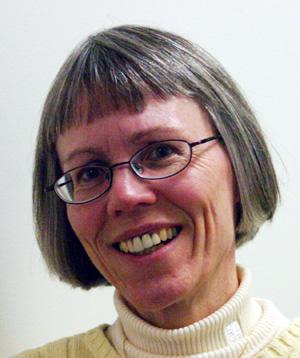
By Barb Arland-Fye
About 10 years ago, a Protestant minister I was interviewing mentioned that his adult daughter struggled with a mental disability. While that detail was not the focus of the story for which I was interviewing him, it left a lasting impression.
He had accepted the fact that his daughter’s struggles would be a lifelong concern for him and his wife. But clearly, they loved their daughter and wouldn’t give up striving to enhance the quality of her life.
My older son, Colin, who was about 12 at the time had challenging behaviors that served as coping skills for his autism. I assumed the challenging behaviors would subside as he grew older. Was the minister’s experience going to be our family’s experience?
It was important for me to be able to see light at the end of the tunnel and that it wasn’t beaming from an oncoming freight train. But that’s what faith is about for me, striving to be patient awaiting God’s answers to prayer and willing to accept the way in which God answers them. This is a work in progress.
A social worker told my husband and me that the transition years — the end of high school to early adulthood — are the toughest for young adults with mental disabilities. Maybe that’s true for families with typical children who have reached adulthood, especially in these challenging economic times. The transition years have been rocky for Colin.
His younger brother Patrick is a freshman in high school now, and Colin eagerly awaits every detail he can persuade Patrick to reveal. It’s as if Colin is living vicariously through his younger brother. Documents and class booklets from Colin’s years in school are well-worn and lay open face on his bed. He even re-reads the goals hammered out in his old Individual Education Plans!
Years ago, the owner of the daycare Colin attended as a toddler assured me that if Colin developed meaningful language by age 5, he would succeed. I hung on fiercely to that hope. Colin did develop meaningful language by the age of 5, which truly was a blessing.
In time, I realized the ability to make and maintain friendships was at least as important. Developing a network of friends has been an elusive goal. Sometimes autistic people like Colin have a need to escape into an inner world that is far more ordered and orderly than the real world. Colin needs friends who are willing to initiate and sustain the friendship and to draw him out of his inner sanctum.
Our dreams for Colin continue to be independent living, meaningful employment and satisfying friendships. We’re making progress. He continues to live in an apartment with a roommate as independently as possible.
He’s had jobs that haven’t worked out for various reasons, but now he’s preparing to do volunteer work for an agency whose employees know him well.
The other night Colin told us he had gotten together with a friend for lunch. They’re planning to get together again for lunch soon. Colin’s face glowed when he said his friend likes to visit him. Small victories like that provide optimism that makes the struggles less daunting.








